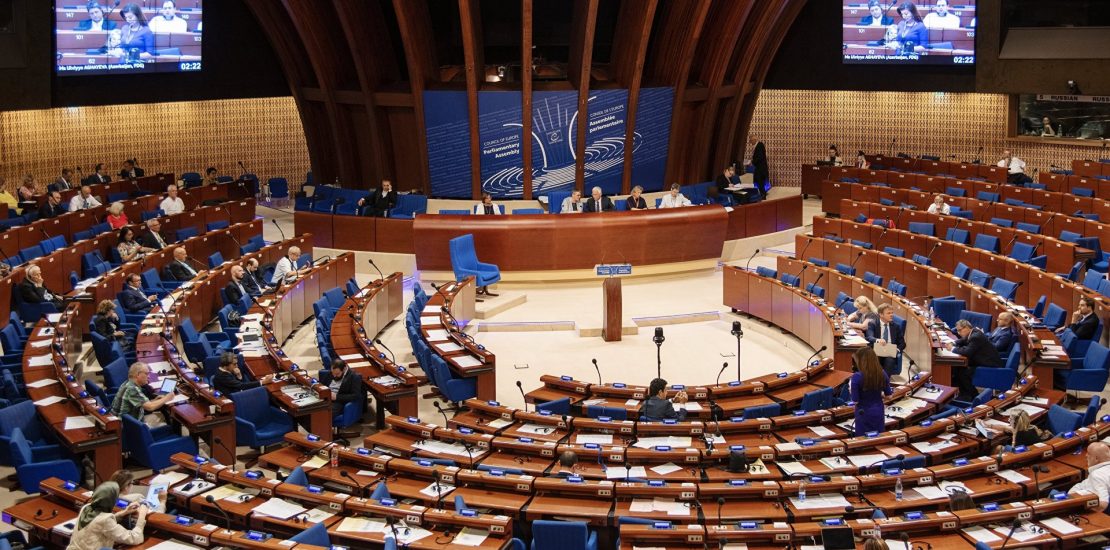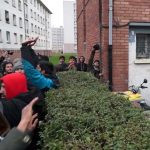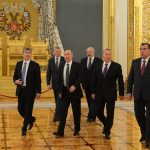- 22 April, 2021
- Foreign Policy

On April 19, the issue of “Armenian prisoners of war and displaced persons” was included in the agenda of the regular plenary session of the Parliamentary Assembly of the Council of Europe.
It was initially included in the package of current affairs debate, but a separate vote was held on the issue due to the motion submitted by the representative of Azerbaijan Samad Seyidov. As a result of the voting, the issue of Armenian prisoners of war was included in the agenda of the PACE plenary session with 93 votes in favor, 21 against and 18 abstentions.
The infographic below shows the voting of the countries whose delegates voted against or abstained.
It is noteworthy that the Russian delegation did not vote for the inclusion of the issue in the agenda (5 delegates voted against and 7 abstained). Later, in response to a question from one of his followers on his Instagram page, one of the Russian delegates, Sergei Pakhomov interpreted the voting of delegation as a “technical failure.”
“During the voting on this issue, our entire delegation faced a technical issue. We also do not believe in coincidences. We have already submitted relevant appeals,” Pakhomov wrote.
The whole delegation of Azerbaijan, 1 delegate from Serbia, 1 from Hungary, and 8 delegates from the Turkish delegation voted against. It is noteworthy that one person from the Turkish delegation voted for including the issue in the agenda of the PACE plenary session ․ It was Feleknas Uca, a Kurdish MP from the pro-Kurdish People’s Democratic Party (HDP) represented in the Turkish Parliament.
Calls for the return of prisoners, the issue of mined areas: What were the speeches about?
The discussion on the issue (3:03:00) was opened by the French delegate Alain Milon, who referred to the decisions of the European Court of Human Rights on the Armenian prisoners of war in Azerbaijan and called on the Azerbaijani authorities to release them immediately.
“I have heard statements in which Armenian soldiers are presented as terrorists, I have seen those intolerable videos, just like you have, and I have seen the inauguration of the Military Trophies Park,” he said.
On behalf of the entire Austrian delegation, delegate Stefan Schennach called for the release of the Armenian prisoners of war. Just as his French counterpart, he stressed that for peace and reconciliation between the parties it is necessary to “have respect for the memory of the victims of the war.”
“There is a large number of servicemen who are still being held in Azerbaijan. I appeal to the leadership of Azerbaijan, let’s stop trading, it does not matter whether the Armenian prisoners of war were captured before or after the ceasefire. We simply have to allow them go home without any ‘but’,” said the Austrian delegate.
Another French MP, Alexandra Louis, referred to the inhuman, cruel treatment of the prisoners of war by the Azerbaijani authorities. He stressed that the ECHR has inquired Azerbaijan about the conditions they are being held in, but has not received any answer.
Another member of the delegation, Bernard Fournier, stressed that the Council of Europe should not have member states that do not meet the requirements of the ECHR.
Paulo Pisco from Portugal emphasized that, unlike Armenia, Azerbaijan did not fulfill its obligations, did not return the Armenian prisoners of war.
“And where are Turkey and Russia now? Are they allies in war or in peace?” the Portuguese MP said, adding that it is not only Armenia’s problem, but also that of whole of Europe, as Azerbaijan violates international humanitarian norms.
Kimmo Kiljunen from Finland spoke not only about the need to release prisoners of war, but also about the “preservation of a rich cultural heritage” in Artsakh. The Finnish delegate also expressed hope that Armenia and Azerbaijan will be able to reach an agreement on the location of the mined territories of Artsakh and the exchange of maps. The Finnish delegate also expressed hope that Armenia and Azerbaijan will be able to reach an agreement on the location of the mined territories of Artsakh and the exchange of maps.
Delegates Paul Gavan from Ireland and John Howell from Great Britain called for the immediate release of the Armenian prisoners of war.
Italian MP Roberto Rampi insisted that the Artsakh conflict should become a thing of the past, and expressed confidence that reconciliation between Armenia and Azerbaijan is possible.
Kamal Jafarov from the Azerbaijani delegation expressed his “deep disappointment” over bringing the issue to the agenda. He claimed that the assembly was “being used by the Armenian authorities for pre-election purposes to show its own people that they are working.” He blamed Armenia for “preparing for revenge” and “not providing” maps of the mined territories to Azerbaijan.
Another Azeri delegate, Rafael Huseynov, continued to claim that “Armenian servicemen from the Shirak Province are terrorists, war criminals” whose “target was the civilian population of Azerbaijan.”
The discussion was concluded by the Turkish delegate Mehmet Eker, who claimed that “due to the Armenian occupation, Azerbaijan has suffered serious historical, political, cultural and economic losses”. He asserted that the war was “unleashed by the Republic of Armenia, which regularly carried out provocative actions against the civilian population of Azerbaijan.”
None of the deputies from the Russian delegation, Armenia’s strategic ally, spoke on the issue.
Speakers from the Armenian delegation included Mikael Melkumyan, a member of the Prosperous Armenia Party (PAP), Ruben Rubinyanfrom My Step Bloc, who referred to the anti-Armenianism raging in Azerbaijan and its implications.
The infographic below shows the picture of the delegates’ speeches at the PACE on the issue of Armenian captives.
Nane Manasyan
Union of Informed Citizens




